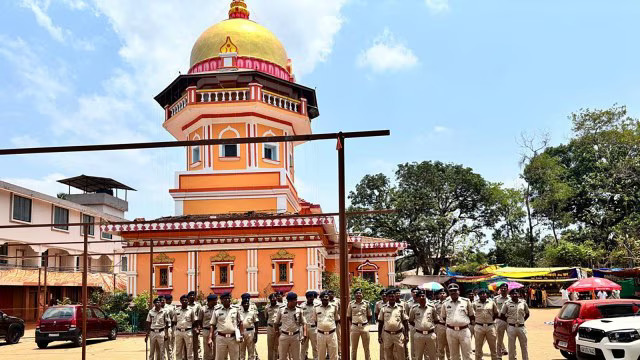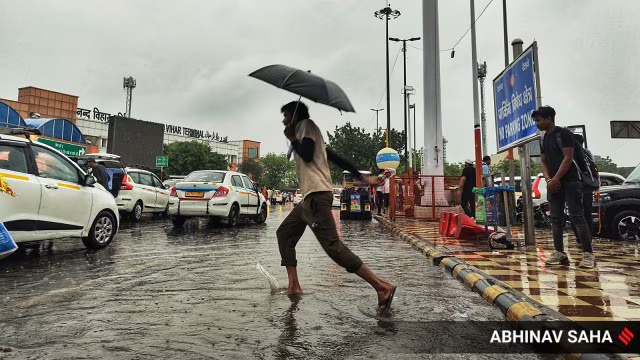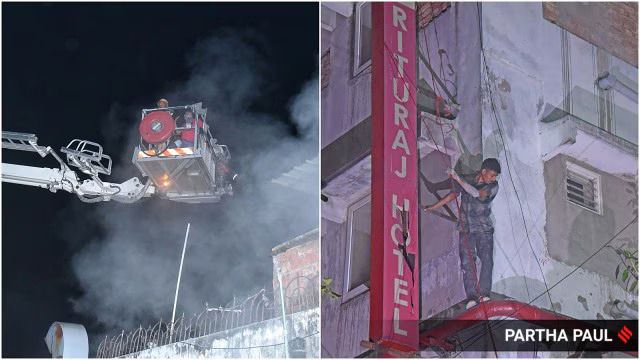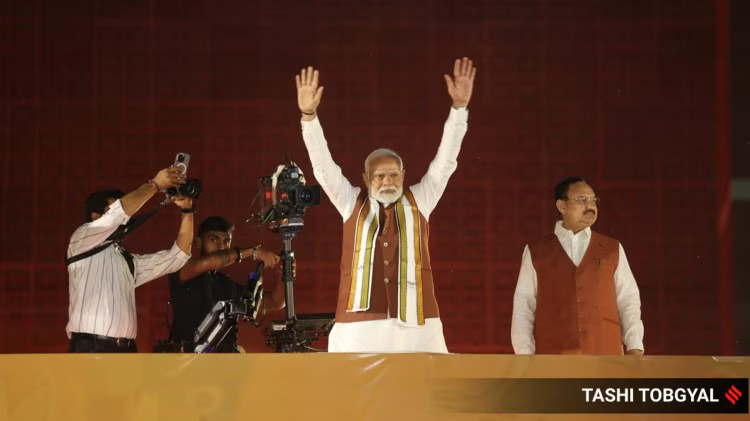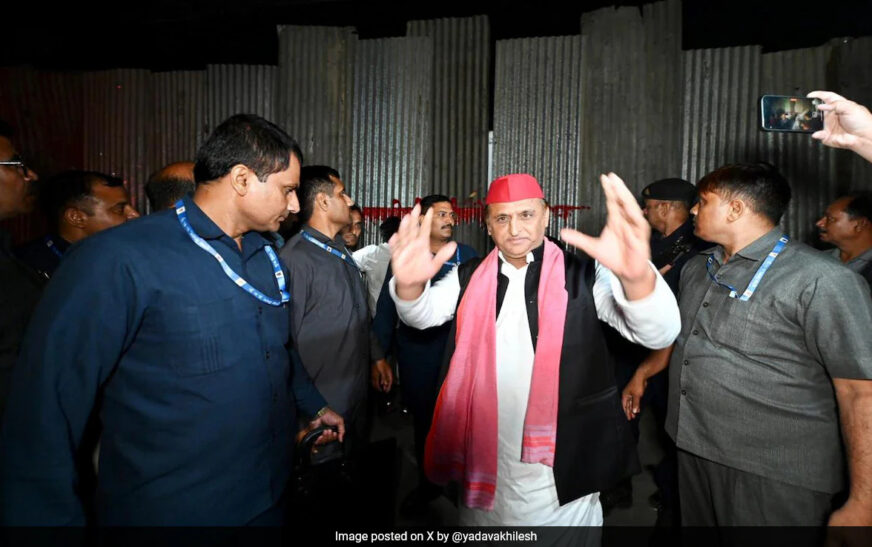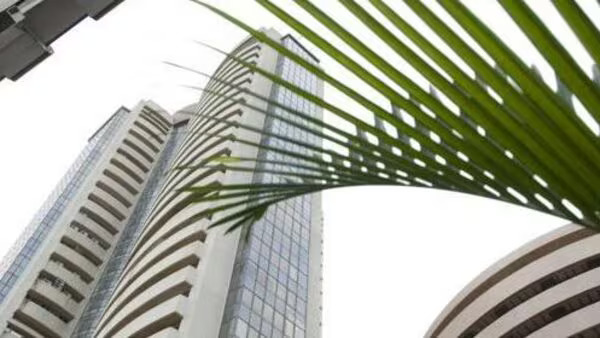Ratan Tata’s body will be kept at the National Centre for Performing Arts (NCPA) in Mumbai’s Nariman Point from 10 am to 4 pm today, where people can pay their last respects.
Ratan Tata’s body will be kept at the National Centre for Performing Arts (NCPA) in Mumbai’s Nariman Point from 10 am to 4 pm today, where people can pay their last respects.
Mumbai:
Industrialist Ratan Tata, who died at the age of 86 in a Mumbai hospital on Wednesday, will be cremated with full state honours, Maharashtra Chief Minister Eknath Shinde announced. The state government has also declared a day of mourning on Thursday to honour the late industrialist.
Mr Shinde announced that the national flag will be flown at half-mast across government offices in Maharashtra as a mark of respect. Entertainment events scheduled for Thursday have been cancelled.
Mr Tata’s body will be kept at the National Centre for Performing Arts (NCPA) in Mumbai’s Nariman Point from 10 am to 4 pm today, where people can pay their last respects. The cremation will take place in the Worli area later in the day. Home Minister Amit Shah will attend the late billionaire industrialist’s funeral as Prime Minister Narendra Modi departed for Laos to attend the ASEAN-India and East Asia summits.
Mumbai:
Industrialist Ratan Tata, who died at the age of 86 in a Mumbai hospital on Wednesday, will be cremated with full state honours, Maharashtra Chief Minister Eknath Shinde announced. The state government has also declared a day of mourning on Thursday to honour the late industrialist.
Mr Shinde announced that the national flag will be flown at half-mast across government offices in Maharashtra as a mark of respect. Entertainment events scheduled for Thursday have been cancelled.
Mr Tata’s body will be kept at the National Centre for Performing Arts (NCPA) in Mumbai’s Nariman Point from 10 am to 4 pm today, where people can pay their last respects. The cremation will take place in the Worli area later in the day. Home Minister Amit Shah will attend the late billionaire industrialist’s funeral as Prime Minister Narendra Modi departed for Laos to attend the ASEAN-India and East Asia summits.
READ | Ratan Tata: Industrialist, Philanthropist, And Indian Icon
Mr Tata’s death marks the end of an era in Indian business, where a man reshaped the country’s industrial landscape and catapulted his family-owned conglomerate into a global powerhouse.
Although he controlled over 30 companies operating in more than 100 countries across six continents, Mr Tata lived an unassuming life. Despite his vast influence and success, he never appeared on lists of billionaires and remained a figure of quiet integrity and decency.
Born on December 28, 1937, in Mumbai, Mr Tata hailed from one of India’s most illustrious business families. He was the great-grandson of Jamsetji Tata, the founder of Tata Group, a company that began as a modest trading firm in 1868 but would grow into a business empire spanning industries as diverse as steel, salt, automobiles, software, and even airlines.
Mumbai:
Industrialist Ratan Tata, who died at the age of 86 in a Mumbai hospital on Wednesday, will be cremated with full state honours, Maharashtra Chief Minister Eknath Shinde announced. The state government has also declared a day of mourning on Thursday to honour the late industrialist.
Mr Shinde announced that the national flag will be flown at half-mast across government offices in Maharashtra as a mark of respect. Entertainment events scheduled for Thursday have been cancelled.
Mr Tata’s body will be kept at the National Centre for Performing Arts (NCPA) in Mumbai’s Nariman Point from 10 am to 4 pm today, where people can pay their last respects. The cremation will take place in the Worli area later in the day. Home Minister Amit Shah will attend the late billionaire industrialist’s funeral as Prime Minister Narendra Modi departed for Laos to attend the ASEAN-India and East Asia summits.
READ | Ratan Tata: Industrialist, Philanthropist, And Indian Icon
Mr Tata’s death marks the end of an era in Indian business, where a man reshaped the country’s industrial landscape and catapulted his family-owned conglomerate into a global powerhouse.
Although he controlled over 30 companies operating in more than 100 countries across six continents, Mr Tata lived an unassuming life. Despite his vast influence and success, he never appeared on lists of billionaires and remained a figure of quiet integrity and decency.
Born on December 28, 1937, in Mumbai, Mr Tata hailed from one of India’s most illustrious business families. He was the great-grandson of Jamsetji Tata, the founder of Tata Group, a company that began as a modest trading firm in 1868 but would grow into a business empire spanning industries as diverse as steel, salt, automobiles, software, and even airlines.
READ | Ratan Tata Dies: 10 Facts On India’s Most Beloved Industrialist
Mr Tata’s early life was shaped by his exposure to both privilege and hardship. He was raised by his grandmother, Lady Navajbai Tata, after his parents separated when he was a child. He attended the prestigious Cathedral and John Connon School in Mumbai before moving to the US for higher education. Mr Tata studied at Cornell University, earning a Bachelor of Science degree in Architecture in 1962.
He later attended the Advanced Management Program at Harvard Business School, but his interest in building a career as an architect took a backseat when he returned to India in the early 1960s to work in the family business.
He worked on the shop floor of Tata Steel’s Jamshedpur plant. This hands-on approach to learning would define much of his leadership style in the future.
READ | “Thank You For Thinking Of Me”: Ratan Tata’s Last Social Media Post
In 1971, he was appointed director-in-charge of National Radio and Electronics Company (Nelco), a struggling subsidiary of the Tata Group. However, despite his best efforts, the company’s fortunes could not be turned around in the economic environment of the 1970s.
In 1991, Mr Tata succeeded his legendary uncle, JRD. Tata, as chairman of the Tata Group. JRD, who had led the conglomerate for over 50 years, was a towering figure, and Mr Tata faced scepticism from within and outside the organisation. However, he soon proved his doubters wrong.
1991 was also the year when India opened its economy through liberalisation, moving away from its protectionist policies. Mr Tata seized this moment to lead Tata Group into a new era. Under his leadership, the group embraced global expansion, technological innovation, and modern management practices.
of the most profitable divisions of the Tata Group.
One of Mr Tata’s most personal projects was the Tata Nano, a small car designed to make automobile ownership affordable for millions of Indians. Unveiled in 2008, the Nano was dubbed “the people’s car” and was priced at just ₹ 1 lakh, making it the cheapest car in the world.


